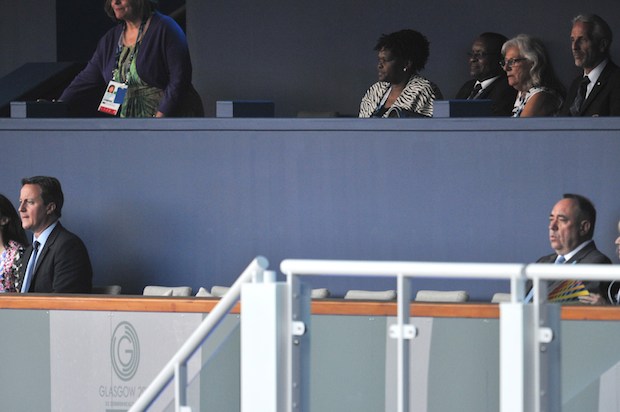In the past two days, both David Cameron and Alex Salmond have denied that they will step down if their side loses the Scottish independence vote. The Scotsman reports Salmond saying:
‘No. We will continue to serve out the mandate we have been given and that applies to the SNP always. It applies to me – all of us.’
And yesterday David Cameron took special care to not to produce an easily-repeatable soundbite on his own position, while trying to remove the possibility that voting ‘Yes’ would result in his resignation. This could have been a gift for the SNP, who have made the campaign as much about getting rid of the Tories from Scotland as Scotland being a more equal, nicer country than the rest of the UK. The Prime Minister said:
‘It’s very important to say no to that emphatically, for this reason: what’s at stake here is not this prime minister or that prime minister or this party leader or that party leader; what is at stake is the future of Scotland. It is for the Scottish people to decide: Do you want to separate yourself from the United Kingdom or separate yourself from the United Kingdom?…
‘It’s very important for people in Scotland to realise the consequence of their vote is purely to and simply about Scotland and its place in the United Kingdom. We shouldn’t try to tie up into this vote the future of Alex Salmond or the future of me or anybody else…
‘In this case, this is about the future of Scotland. It’s a desperately important question, I care passionately about it. As I said, it would break my heart if Scotland were to leave the United Kingdom. But I absolutely believe it is right to give people in Scotland the choice.’
This is why, as Alan Cochrane argues forcefully in today’s Telegraph, Ed Miliband’s decision to seize on Ruth Davidson’s comments that a Tory victory next year was not ‘likely’, in order to make his own political point, was so unhelpful – because it contributes to the SNP narrative of Scots vs the Tories, rather than to a debate about the long-term effects of independence.
But the stakes are naturally much higher for Cameron than they are for Salmond, and if the narrowing of the poll lead for the ‘No’ camp leads to a very narrow ‘No’ vote on 18 September, then Salmond has every reason to say he has succeeded anyway, claim a moral victory and stay on to argue for the best possible deal for Scotland within the United Kingdom. Only a resounding ‘No’ vote would be enough to damage the First Minister, whereas a narrow ‘Yes’ vote would still mean curtains for Cameron.







Comments